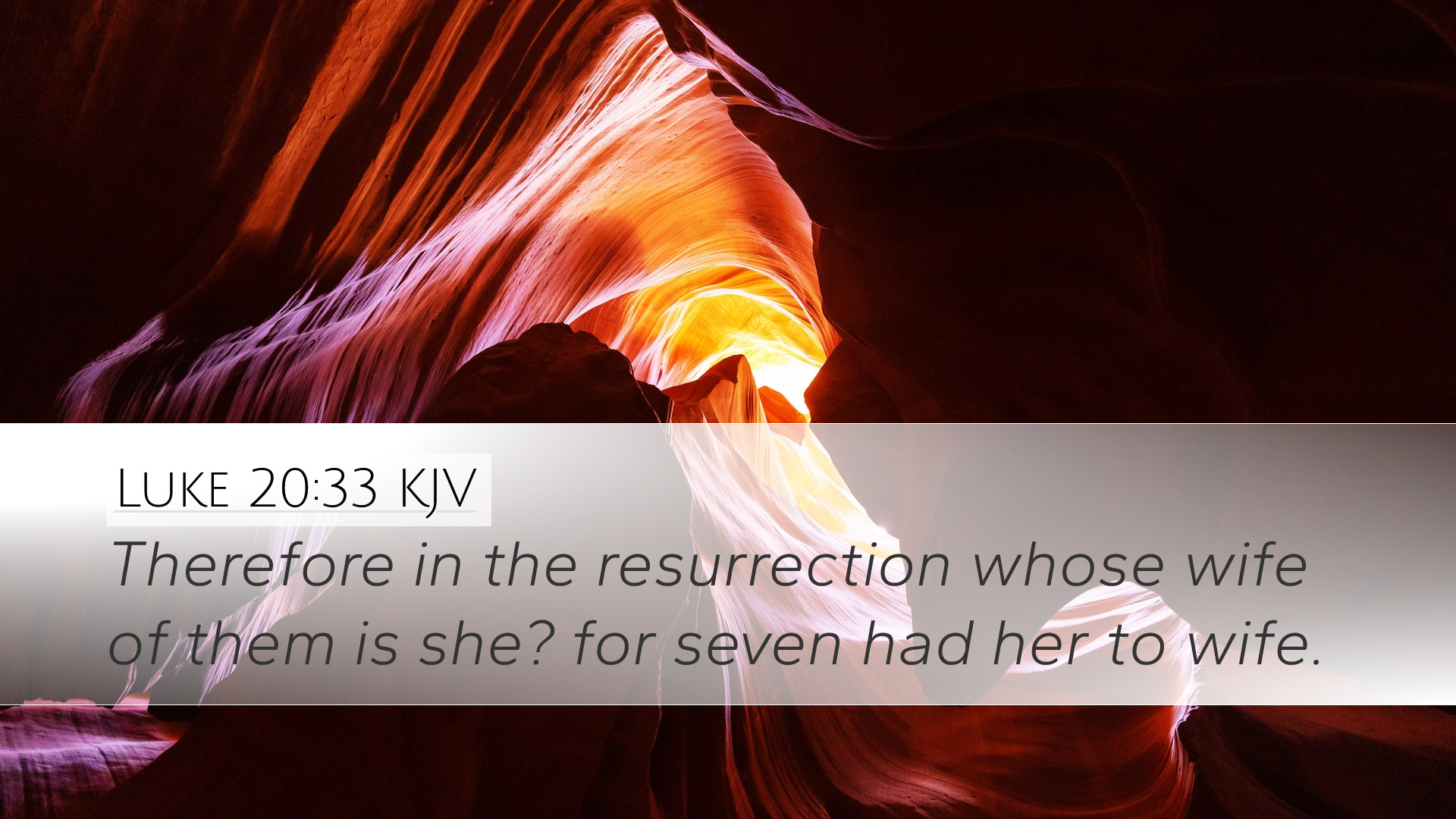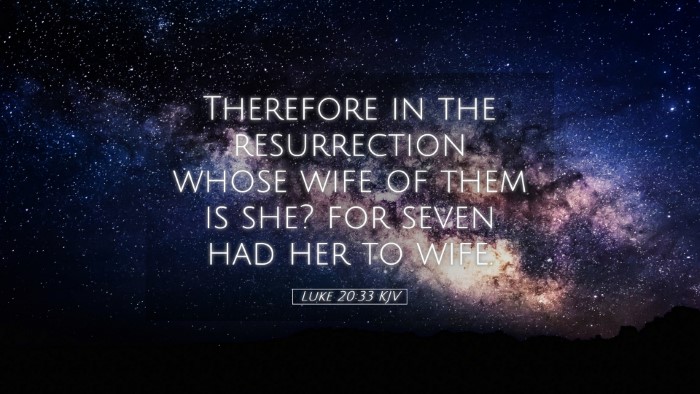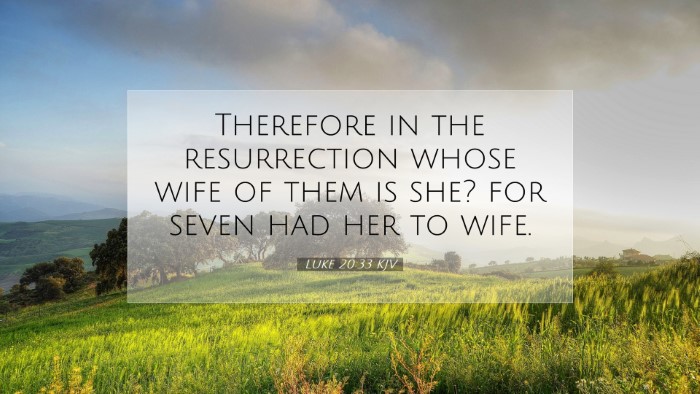Commentary on Luke 20:33
Luke 20:33 states: "Therefore in the resurrection whose wife of them is she? for seven had her to wife." This verse presents a challenge posed by the Sadducees to Jesus concerning the nature of marriage and resurrection.
Contextual Background
The Sadducees were a Jewish sect that denied the resurrection of the dead, a belief which was central to the Pharisees and early Christian teachings. This confrontation reveals their attempt to trap Jesus by presenting a hypothetical situation that showcased their disbelief.
Commentary Insights
Matthew Henry’s Analysis
Matthew Henry highlights the absurdity of the Sadducees' question, emphasizing their misunderstanding of the resurrection. He asserts that the institution of marriage serves a purpose in this life, and its relevance diminishes in the eternal state. The Sadducees, in attempting to mock the resurrection, reveal their ignorance concerning the spiritual realities beyond earthly existence.
Albert Barnes’ Perspective
Albert Barnes elaborates on the intention behind the Sadducees' query, noting their goal was to challenge the belief in resurrection by illustrating a supposed inconsistency. He emphasizes that Jesus' response, which is forthcoming in the following verses, clarifies the relationship dynamics in the resurrection and refutes the notion that earthly institutions apply in the afterlife. According to Barnes, Jesus redirects the focus from earthly marriages to the sovereignty and transformative power of God in the resurrection.
Adam Clarke’s Commentary
Adam Clarke provides a detailed discussion on the cultural significance of marriage in Jewish society. He points out that the leveret marriage law (Deuteronomy 25:5-10), which prescribes a man to marry his deceased brother's widow to maintain family lineage, undergirds the Sadducees' question. Clarke argues that the Sadducees’ hypothetical scenario misrepresents the resurrection's nature, as they confine spiritual truths to human understanding and relations. He emphasizes the error in their assumptions and how Jesus' teaching would illuminate the eternal truths concerning human relationships beyond this life.
Theological Implications
- Nature of Resurrection: The passage raises essential questions about physicality versus spiritual reality. The resurrection transcends earthly constraints, promoting an understanding of existence that is not limited by temporal relationships.
- Divine Authority: This interaction emphasizes God’s authority over life, death, and what comes after. Understanding the resurrection involves recognizing God’s power to redefine human experiences.
- Belief in the Afterlife: The Sadducees represent a significant theological position that denied the afterlife. The challenge they present is not merely philosophical; it speaks to the hope Christians have in eternal life and the necessity of belief in resurrection for authentic faith.
Practical Applications
For pastors, theologians, and students, this verse invites a reflection on our understanding of life after death. It challenges believers to consider the implications of resurrection in daily living. There is also an encouragement to recognize the limitations of human understanding when addressing divine mysteries.
Furthermore, this discourse can be useful in pastoral care settings where individuals might struggle with grief or loss, affirming the hope that Scripture offers regarding the afterlife.
Conclusion
Luke 20:33 serves not only as a critique of the Sadducees’ misunderstanding but also as a profound declaration of the Christian doctrine of resurrection. By integrating insights from Matthew Henry, Albert Barnes, and Adam Clarke, we gain a multifaceted view of this scripture that is rich with theological depth and practical relevance.


